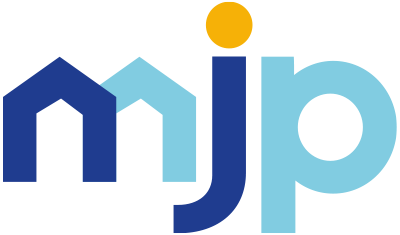At its core, cryptocurrency can be defined as “a digital currency in which transactions are verified and records maintained by a decentralised system using cryptography, rather than by a centralised authority.” For those unfamiliar with the jargon, what this essentially means is that cryptocurrency is an online currency managed through a network of computers rather than by a central authority like a government or a bank.
This sets cryptocurrency apart from traditional, centralised currencies. Whereas centralised currencies are controlled by a single organisation or institution that establishes rules, makes decisions, and safeguards the system, cryptocurrencies operate without such oversight. While this decentralisation offers certain freedoms, it also comes with a host of risks, particularly in the regulatory, security, and legal space.
The Risks Associated with Cryptocurrency
Cryptocurrency’s unique structure and lack of regulation make it a high-risk entity. Some of the primary risks include:
- Hacking and FraudCryptocurrency accounts and exchanges are frequent targets for cyberattacks. A single hack can wipe out significant amounts of funds.
- Instability and High-risk InvestmentCryptocurrency values are highly volatile, prone to dramatic fluctuations that can occur within hours.
- Lack of ProtectionsTraditional financial systems often come with safeguards or recourse in the event of loss or fraud. Cryptocurrency, unfortunately, provides no such safety nets.
- Non-reversible TransactionsOnce a cryptocurrency transaction is completed, it cannot be undone. A mistake or fraudulent payment is permanent.
- No Guaranteed GainsInvesting in cryptocurrency is far from a guaranteed way to generate profit, despite the hype.
Given these risks, cryptocurrency is not only high-risk for investors but also poses specific challenges for businesses like ours in the conveyancing sector.
Risks Imposed on Conveyancers
For conveyancers, engaging with cryptocurrency transactions introduces its own set of vulnerabilities. Two significant areas of concern stand out:
- Legal UncertaintyThe legal framework surrounding cryptocurrency is still evolving. The lack of clear, established regulations creates ambiguity in how transactions should be handled.
- Susceptibility to Money LaunderingCryptocurrency can be used more easily for illegal activities, including money laundering and terrorist financing, due to the anonymity it offers users.
How We Handle Cryptocurrency at MJP Conveyancing
At MJP Conveyancing, we take compliance seriously, and when it comes to cryptocurrency, a cautious and methodical approach is the only sensible way forward. During both our onboarding and instruction processes, we rigorously assess the risks associated with clients who hold or intend to use cryptocurrency.
1. Client Vetting and Onboarding Checks
From the outset, we aim to identify any involvement with cryptocurrency. During onboarding, we explicitly ask clients whether they hold cryptocurrency assets. This is a critical step in recognising potential risks at the earliest stage.
2. Direct Questions about Cryptocurrency
If we discover that a client holds or has previously held cryptocurrency, we ask detailed questions to evaluate the situation. Some of the key queries include:
- How much cryptocurrency is held?
- When was it purchased?
- How was it purchased (e.g., through salary savings)?
- Why did the client invest in cryptocurrency?
- Will the funds be used towards the conveyancing transaction?
These questions allow us to build a full picture of the potential risks involved.
3. Cautious Decision-making
Our general policy is to avoid transactions involving cryptocurrency where the risks are deemed substantial. For example, if a client intends to use cryptocurrency to fund their purchase or actively engages in high-frequency transactions with their crypto account, we usually choose not to proceed.
However, in cases where the risk appears low, we may accept the client after additional checks. These checks often include requesting the following evidence:
- Statements from the client’s cryptocurrency account.
- Proof of deposits made into the account.
- Evidence that the funds were accumulated through legitimate and transparent sources.
4. Steps for Our Team
If cryptocurrency involvement is detected during client interactions, our internal teams are trained to follow specific steps. These include:
- Recording conversations with the client where this information is disclosed.
- Escalating the matter to senior team members, such as myself or my colleague David, or contacting the AML Supervision inbox for further review.
After assessing the information and supporting evidence, we make a final judgement call on whether to proceed with the transaction.
The Importance of Risk-based Decisions
Ultimately, at MJP Conveyancing, our responsibility is to mitigate risks wherever possible, especially in areas as complex and uncertain as cryptocurrency. Each case is evaluated individually, and if the risks are considered too high, we reserve the right to end our retainer and dis-instruct. This disciplined approach is crucial not only for protecting our organisation but also for maintaining the integrity of the services we provide.
Cryptocurrency may be an exciting and innovative development in the financial world, but for now, the lack of regulation means it must be handled with extreme care. By adhering to strict compliance measures and working closely as a team, we ensure that we can continue to offer our clients safe and reliable conveyancing services in an increasingly complex financial landscape.




